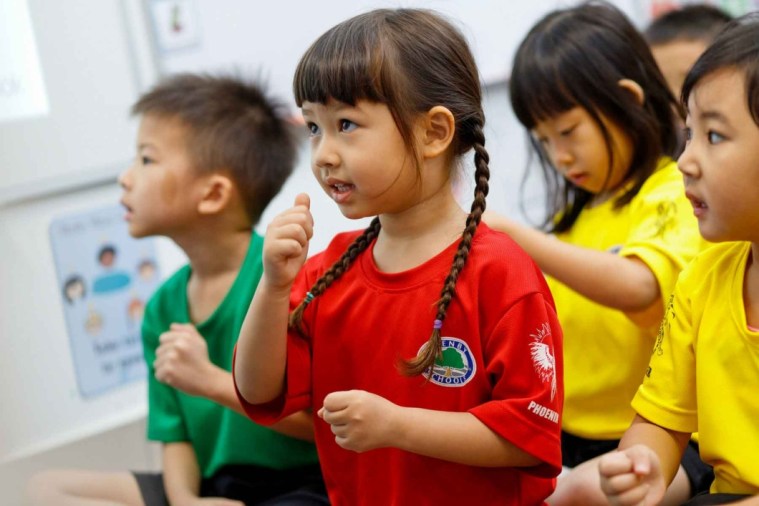For years teachers have favoured the familiar ‘chalk and talk’ approach to teaching. But a newer method that believes in teaching children how to think, rather than what to think is rapidly gaining in popularity.
Jamel Badaoui, Head of Early Years and Key Stage 1 at Tenby International School Setia EcoHill, talks us through why the more modern approach of thematic learning is making traditional teaching methods which do not always focus on students getting better, ancient history at Tenby Schools. He also educates us as to why his school follows the International Primary Curriculum (IPC).

What is the International Primary Curriculum (IPC)?
The International Primary Curriculum (IPC) is designed to cover age appropriate knowledge, skills and understandings, while ensuring that students meet learning goals for specific subjects, but it does it using a slightly different approach known as ‘thematic’ teaching. For this method an overriding theme is chosen, like travel, which is carried through a number of subjects. So a Geography activity could involve students researching various countries while in an aligned Design and Technology activity they could be producing a travel brochure.
The curriculum, as its name suggests, also encourages students to develop International Mindedness – put simply it makes them aware that they are part of a global community. It also develops in children a deeper understanding of the cultural, social and economic differences that exist worldwide.
Furthermore, the curriculum is grounded on extensive worldwide practice and brain-based evidence. Since it was initially introduced around a decade ago teachers from over 1,300 schools and 63 countries across the globe have seen for themselves the positive impact it has made in their classrooms and students’ learning.
Jamel believes that once parents see how empowered and alive the children become while learning through this curriculum framework, they understand just how truly magical this experience is. On many occasions he has witnessed classrooms springing to life with an excited buzz as the children show their eagerness to find out more or tell you what they already know about a new topic.

How is the IPC brought to life in the classroom?
Each carefully selected topicis introduced to students in a way which aims to grab hold of their attention, known as the Entry Point. Whilst the pupils are full of energy and excitement, the teacher begins a ‘knowledge harvest’. This helps them gather together what they already know about a subject/topic, but most importantly what they still want to know.
At the end of a topic, the students take the role of educators and showcase to their parents and teachers all they have learnt and got better at from their research, using innovative methods.
What are the benefits of this approach?
Recent studies have revealed that not only does this approach improve learning outcomes, increase knowledge, skills and understanding but along the way communication skills are also improved. Children link their learning to their own experiences, so they are more confident and comfortable when speaking with others about what they have learnt.
It is also shown to encourage children to be more independent, develop critical thinking skills and provide them with added opportunities for creativity, as they are encouraged and challenged to find their own answers to questions, rather than having these handed to them.
What can you do if a child doesn’t like a topic or isn’t engaged with it?
“In an ideal world every child will love every topic straight away, but of course that is not always the case. The first thing we do is try not to draw attention to a child who is not 100% on board. We need to understand why they are not enthusiastic,and then show interest in what they are interested in. Though generally the best way to engage students is by using their peers to get them involved and excited”, explains Jamel.
How do parents react to the IPC approach?
Jamel has found that on occasion some parents might be sceptical or unsure of the approach, as it is far removed from ‘the chalk and talk’ method they experienced as youngsters at school.
However, he finds that this method works best if parents fully support and understand what they are trying to achieve and the full benefits of this approach. At Tenby Schools they use workshops initially to increase parents’ understanding, but soon he finds that they see for themselves the positive impact it has on their child and how they have grown and flourished using the approach.

Which particular set of children benefit most from the approach?
In Jamel’s years of teaching he says that “I’m yet to see a child, no matter what their background or previous academic experience, that has not benefited from this approach and shown lots of amazing learning.”
He continues: “It is even great for the teachers, as no two times that they teach a topic are the same, so it keeps them motivated.
At Tenby International School Setia EcoHill the IPC programme has proved to be so successful and popular with students and parents alike that we are now using this method to teach pupils as young as three years old. So now we get to witness the results of this learning focussed approach, which sees children surprising themselves beyond what they thought they could do; what we refer to as ‘amazing learning,’ throughout the school.”
“We always aim to instil in our students the idea that getting better comes through a good struggle, which ensures the character and confidence necessary for local and global success. And speaking as a teacher and parent myself there is no greater feeling than when a child surprises themselves with what they have learnt and how far they have come.”
If you want to know more about the Amazing Learning opportunities at Tenby Schools’ extensive network of private International and Malaysian National Schools, or if you wish to secure your child’s place with the Tenby Schools family, you can enquire, book a visit or apply here.



















